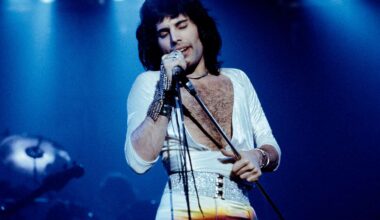Although David Gilmour wasn’t part of Pink Floyd’s original lineup, his entry into the band in 1968—initially to support and eventually replace the troubled Syd Barrett—marked the beginning of his ascent to becoming one of progressive rock’s most iconic guitarists. As a creative force alongside Roger Waters during the band’s most influential years, Gilmour helped shape the sound of a generation. But despite the success, the experience wasn’t always easy.
The pressure of constantly redefining the boundaries of rock music weighed heavily on the band. Each album needed to push further, sound richer, and land with more impact. And working under the intensity of Roger Waters’ perfectionism only amplified the strain. Though the results were legendary, the process took a toll.
After Waters departed Pink Floyd in the wake of his 1984 solo album The Pros and Cons of Hitchhiking, the band entered a period of uncertainty. During the lull, Gilmour found a freedom that had long eluded him—free from the pressures of internal band politics and expectations, he could finally say yes to whatever inspired him.
He lent his talent to recordings by artists such as Pete Townshend, Grace Jones, and Paul McCartney. But it wasn’t a studio session that left the biggest impression on Gilmour—it was a brief but powerful moment on stage at Live Aid in 1985.
With Pink Floyd on hiatus, Gilmour joined Bryan Ferry for a four-song set at Wembley Stadium during the iconic charity concert. It wasn’t a headline spot, and Gilmour wasn’t even officially announced. But for him, that didn’t matter in the slightest.
“To be at Wembley on that particular day was a really fabulous experience,” he recalled in a 1988 Australian radio interview. “I had a really good day. I mean, taking part in something like that is a fantastic experience.”
Rather than being concerned about credit or recognition, Gilmour embraced the simplicity of just playing music. “I literally don’t have the sort of ego that demands that I be announced or something like that,” he said. “I do this as a career, but I’d be doing it anyway if I had another job. To have the privilege of being allowed to get on a show like that is a wonderful thing—I don’t care about all the other shit.”
Even after years of stadium shows, chart-topping records, and the complex dynamics of one of rock’s most legendary bands, it was the unassuming joy of that performance that stood out for Gilmour—a rare moment of pure connection, stripped of the politics and pressure that often defined his earlier years.





